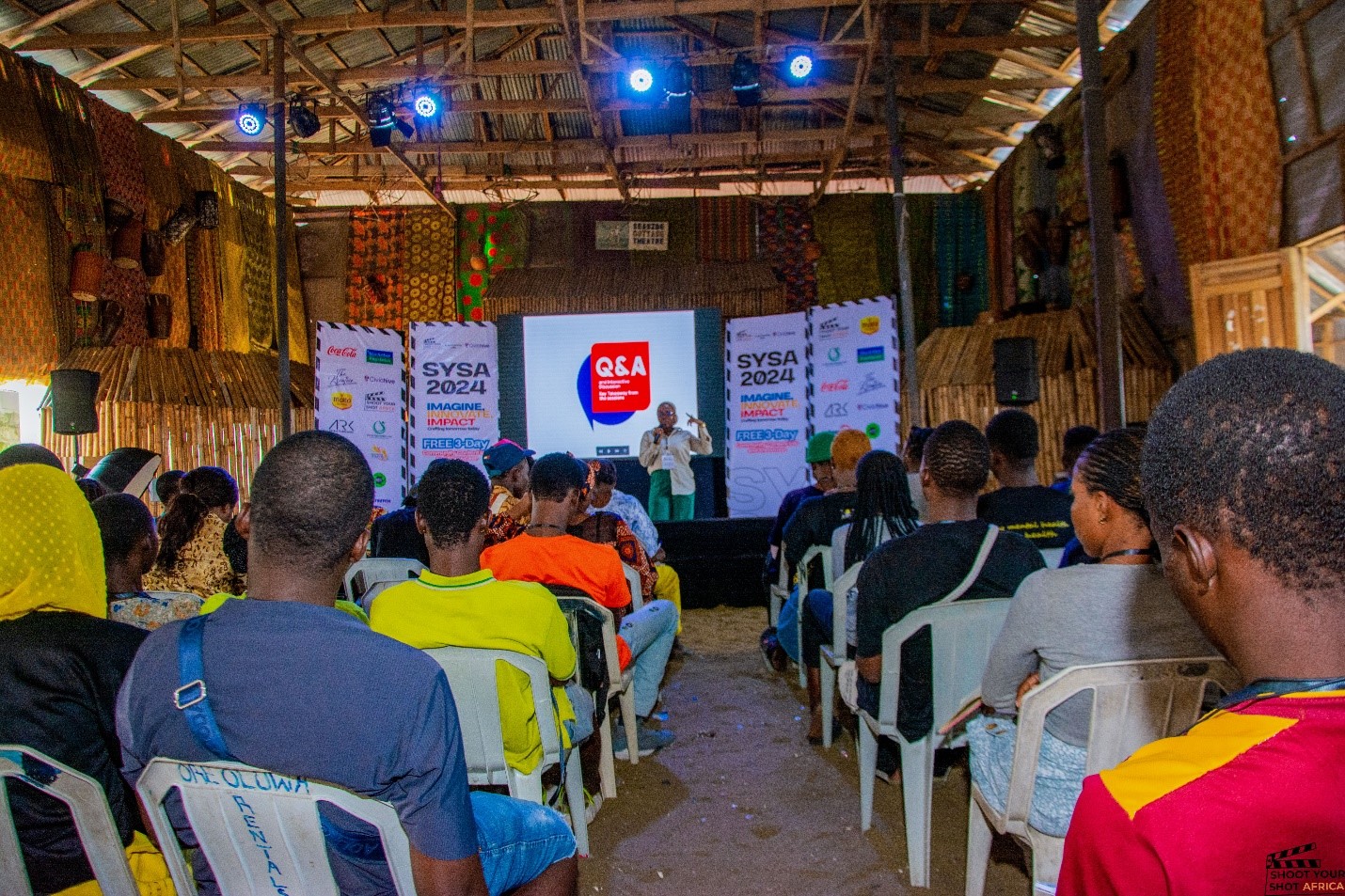
Spaces for Change | S4C and the Community Alliance Against Displacement (CAD) partnered with Shoot Your Shot Africa (SYSA) to host a 3-day Content Lab and Showcase in the Bariga/Shomolu community area of Lagos between August 14th and 16th, 2024. Fifty (50) participants comprising community leaders, content creators, social media influencers, and community residents attended the event, tagged, “IMAGINE, INNOVATE, IMPACT: Crafting Tomorrow Today.” Stories about injustices, deprivations and indignities faced by low-income communities in urban cities hardly make news headlines. Thanks to the vast array of digital technologies which have democratized access to news and information, it is now possible for unheard stories to be told powerfully, not just by newsmen, but by individuals, communities and the victim themselves. That is why the 3-day “Imagine, Innovate, Impact” Content Lab focused on amplifying the voices of marginalized communities through impactful content creation. It was conceived to address the growing need for marginalized communities, particularly those in urban slums to control their narratives in a rapidly digitalizing world.
Residents of these communities live in squalid conditions, aggravated by lack of access to basic social amenities such as water, sanitation, hospitals and good educational institutions. Because of these deprivations, they are often portrayed as miscreants, dirty, and even criminals. All too often, slums and their residents are depicted through negative stereotypes—emphasizing poverty, crime, and disorder rather than highlighting the resilience, culture, and vibrancy that characterize their daily lives. These skewed portrayals contribute to social stigmatization, policy neglect, and, in extreme cases, are used to justify forced evictions and mass displacements under the guise of urban renewal. Against this backdrop, the Content Lab featured various types of trainings designed to transform participants into advocates of their own rights and interests.
Participants learned how to use skits, comedy, games and pun to counter narratives propagated through the media, reinforced by government rhetoric, and bolstered by popular misconceptions. These portrayals serve as a convenient justification for forced evictions, mass displacement, and, in many cases, gentrification. The negative narratives often paint slum residents as squatters or illegal occupants, conveniently ignoring their longstanding ties to the land and their contributions to the local economy and society. As a result, the public is conditioned to view these communities as obstacles to urban development rather than as integral parts of the urban fabric.
Trainers emphasized the critical role that content creators from within these communities can play in countering these damaging narratives. By telling their own stories, residents can challenge the dominant discourse, presenting an alternative narrative that showcases their resilience, creativity, and the richness of their community life. Content creation, particularly when shared on social media platforms, offers a powerful avenue for slum communities to tell their own stories and assert their right to exist and thrive within the city. Participants were encouraged to document and share their lived experiences, focusing on the positive aspects of their communities, such as strong social networks, cultural practices, and economic activities that are often ignored by mainstream portrayals.
Over the three days, participants were split into five groups to work on hands-on projects designed to apply what they had learned. Each group was tasked with producing content based on practical assignments, which were evaluated on several criteria, including message/theme, cinematography, sound, and interpretation. This practical approach allowed participants to immediately put their new skills to use, reinforcing the idea that content creation is not only a means of self-expression but also a strategic tool for advocacy and social change. In essence, the Content Lab and Showcase was not just about teaching technical skills; it was about empowering a community to take control of its destiny, using the power of storytelling and digital media to fight for a more just and equitable society. By equipping participants with these digital skills, the event laid the groundwork for ensuring that the voices of the most vulnerable are included in the decision-making processes that affect their lives.



